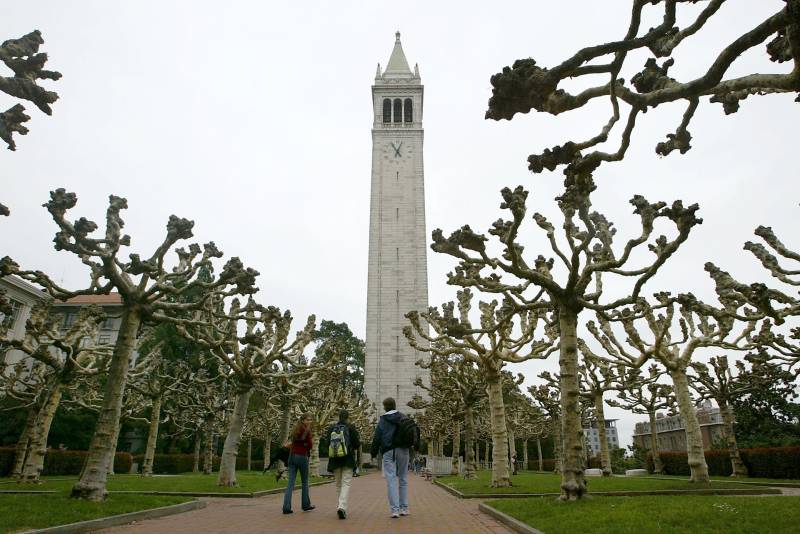In August, Alameda County Superior Court sided with the Berkeley residents, ordering the university to cap enrollment at its 2020-21 level of just over 42,000, and to suspend construction of a proposed faculty housing and classroom project. The residents argued the project, which would have created 150 faculty apartments, failed to plan for the increased noise, traffic and other quality-of-life problems the new buildings would bring.
The group of Berkeley residents also says the university should build more housing on its own property. It contends that a dearth of on-campus housing forces students to find alternatives around the city, in a process that ultimately displace lower-income city residents, fuels homelessness and strains city resources.
Phil Bokovoy, the president of the group, says he's pleased with the court's decision but not with the way the university is handling it.
"We’re not happy that deserving California high school students have been used as pawns in UC Berkeley’s attempts to avoid mitigating the impact from those massive enrollment increases," he said.
Freezing enrollment means that UC Berkeley would not be able to offer an additional 3,050 seats for incoming first-year and transfer students as planned for the fall of 2022, and stands to lose at least $57 million in tuition, officials said. The university typically offers admission to roughly 21,000 first-year and transfer students, about 9,500 of whom enroll.
An appeals court last month denied UC Berkeley's request to lift the enrollment freeze as the case continues. The decision prompted Gov. Gavin Newsom to file a friend of the court brief asking the California Supreme Court to block the enrollment cap, saying in a statement that a lawsuit should not “get in the way of the education and dreams of thousands of students who are our future leaders and innovators.”
Writing in dissent of Thursday's 4-2 decision, Associate Justice Goodwin Liu lamented that thousands of students could lose the opportunity to attend one of the top universities in the country because of "an environmental lawsuit." He urged the university to renew its request for a stay at the Court of Appeal and urged the two sides to engage in negotiations or mediation to solve the dispute quickly.
Following Thursday's decision, an outpouring of support for the university came from lawmakers, including Assemblyman Phil Ting, a San Francisco Democrat and UC Berkeley alum.
"I know personally how life changing it can be to attend UC Berkeley,” Ting said. “I have been in contact with UC leadership, and the Legislature is exploring a variety of options."
State Sen. Scott Weiner, a Democrat from San Francisco, who has long run up against CEQA in his push to build more affordable housing, called it “tragic that California allows courts and environmental laws” to determine the number of students at a top state school.
"We must never allow this to happen again," he said. "We must change the law. And we will."
KQED's Tara Siler contributed to this story.
